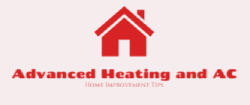In this article, we will explore the key signs that your HVAC system may require repair and discuss how professional services can help you maintain a comfortable environment in your home or business. Understanding these warning signs early on can save you from unexpected breakdowns and costly repairs. Whether it’s a subtle change in airflow, strange noises, or uneven temperatures, recognizing when your system is struggling is crucial for keeping your space comfortable year-round. We’ll also highlight why relying on trained HVAC repair professionals is essential to ensure your system runs efficiently, safely, and reliably.
1. What are the Common Signs of HVAC Malfunction?
Recognizing early indicators of HVAC issues can save you time and money in the long run. Often, homeowners overlook small problems that can quickly escalate into more significant repairs.
Whether it’s a spike in energy bills or improper temperature regulation, these factors indicate that your HVAC system needs attention.
Another common sign of HVAC malfunction is inconsistent temperatures throughout different rooms. This can result from duct obstructions or mechanical issues within the system, all of which require prompt diagnosis. Timely detection can prevent further deterioration of your HVAC unit, ensuring that your investment remains protected.
Additionally, frequent cycling of the HVAC system—where the unit turns on and off repeatedly in a short period—can also signal underlying issues. A professional repair service can help identify the root cause of these malfunctions, providing solutions that enhance energy efficiency and restore comfort to your space.
2. How Do Unusual Noises Indicate HVAC Problems?
Unusual sounds like rattling, humming, or grinding noises can point towards specific HVAC system issues. For instance, a rattling sound could indicate loose parts or debris within the system, potentially leading to more significant problems if left unaddressed. Listening closely can help detect these sounds, which is vital to maintaining your HVAC system’s longevity.
A humming sound might suggest that the system is working harder than it should, possibly due to an electrical issue or a failing motor. These electrical problems can be dangerous if not handled properly, making it crucial to consult with a professional. In this case, the sooner you act, the less likely you’ll face extensive damage to your system.
Moreover, grinding noises typically suggest worn-out bearings or other mechanical failures that demand immediate professional evaluation. Ignoring these sounds can initiate a cascade of failures in your HVAC system, which can ultimately lead to costly repairs or even a complete replacement.
3. Why is Poor Airflow a Cause for Concern?
Insufficient airflow can significantly affect your HVAC system’s efficiency and your home’s comfort. Poor airflow can lead to unbalanced temperatures in your living spaces, making some areas too cold while others are unbearably hot. This uneven distribution of air can contribute to a less comfortable living environment.
It can also indicate blockages in your ductwork, which may harbor dust, dirt, or other debris that reduces the system’s efficiency. This buildup not only hampers performance but could also lead to increased energy costs due to the HVAC unit working overtime to maintain desired temperatures.
Additionally, poor airflow can lead to more serious issues, such as system overheating or compressor failure. Addressing airflow problems with the help of a trained technician is crucial to ensure the HVAC operates at peak efficiency and to maintain your home’s air quality.
4. When Should You Consider Calling an HVAC Professional?
Knowing when to seek professional help can prevent minor issues from turning into major repairs. If you’ve noticed any of the previous signs—like unusual noises or poor airflow—it’s essential to contact an experienced HVAC technician. They possess the knowledge and tools necessary to diagnose problems accurately and develop effective solutions.
Another scenario where you should call in a professional is if your HVAC system is experiencing significant temperature fluctuations or has stopped working altogether. These issues can arise unexpectedly and can stem from various underlying causes, including electrical failures or coolant leaks. Prompt attention can save you from high repair costs down the line.
Lastly, if you’ve conducted routine maintenance but still experience problems, it’s time to consult with a professional. Self-diagnosing HVAC issues can lead to misdiagnosis, and having a trained eye can mean the difference between a small repair and a total system overhaul.
If you notice any of the above signs in your HVAC system, it’s crucial to consult a professional to assess the situation and ensure your system runs efficiently. Ignoring early warning signs can lead to more severe problems that not only disrupt your comfort but also result in costly repairs or even premature system replacement. HVAC systems are complex machines that require specialized knowledge and tools to diagnose and repair properly. A trained technician can identify hidden issues that might not be obvious and provide solutions that save you money and extend the life of your unit.

